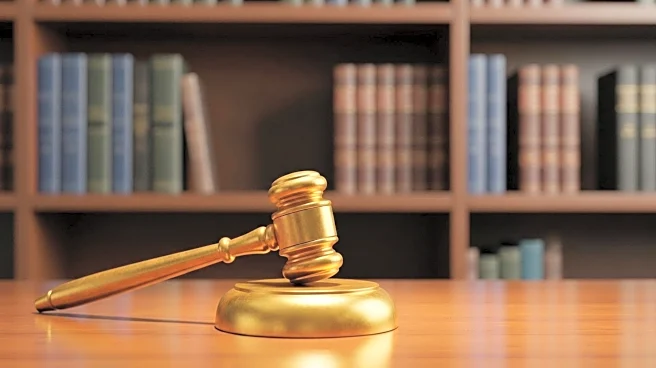What is the story about?
What's Happening?
Senior Judge William Young of Massachusetts has issued a significant legal opinion challenging the Trump administration's immigration policy. In a detailed 161-page document, Young ruled against the administration's attempt to deny First Amendment protections to non-citizens, including pro-Palestinian protesters on college campuses. The opinion criticizes President Trump's use of executive power and includes personal remarks and historical references, which are unusual for a court decision. Young's opinion also addresses a threatening postcard he received, emphasizing his commitment to duty and the Constitution. This ruling has sparked widespread attention within the legal community, highlighting Young's unique approach to judicial writing.
Why It's Important?
Judge Young's opinion is significant as it challenges the Trump administration's stance on immigration and free speech, potentially impacting future legal interpretations of First Amendment rights for non-citizens. The ruling underscores the tension between district-level judges and the administration, reflecting broader frustrations within the judiciary regarding emergency rulings from the Supreme Court. This decision may influence public discourse on immigration policies and civil liberties, affecting stakeholders such as immigrant communities, legal advocates, and policymakers. The opinion's unconventional style has drawn criticism and praise, indicating its potential to provoke further legal and political debates.
What's Next?
The ruling is likely to face appeals, which could test its resilience in higher courts. The Department of Homeland Security has criticized the decision, suggesting it may exacerbate tensions between federal law enforcement and the judiciary. As the legal community reacts, the opinion may prompt discussions on judicial independence and the role of courts in addressing executive actions. Stakeholders, including civil rights organizations and government agencies, may engage in further advocacy or policy adjustments in response to the ruling's implications for free speech and immigration.
Beyond the Headlines
Judge Young's opinion highlights ethical and legal dimensions of judicial writing, raising questions about the balance between legal formalism and expressive commentary. The decision reflects broader cultural shifts in the judiciary's role in safeguarding constitutional rights amid political challenges. It may inspire other judges to adopt more assertive stances in their rulings, potentially influencing long-term judicial practices and public perceptions of the judiciary's role in democracy.














